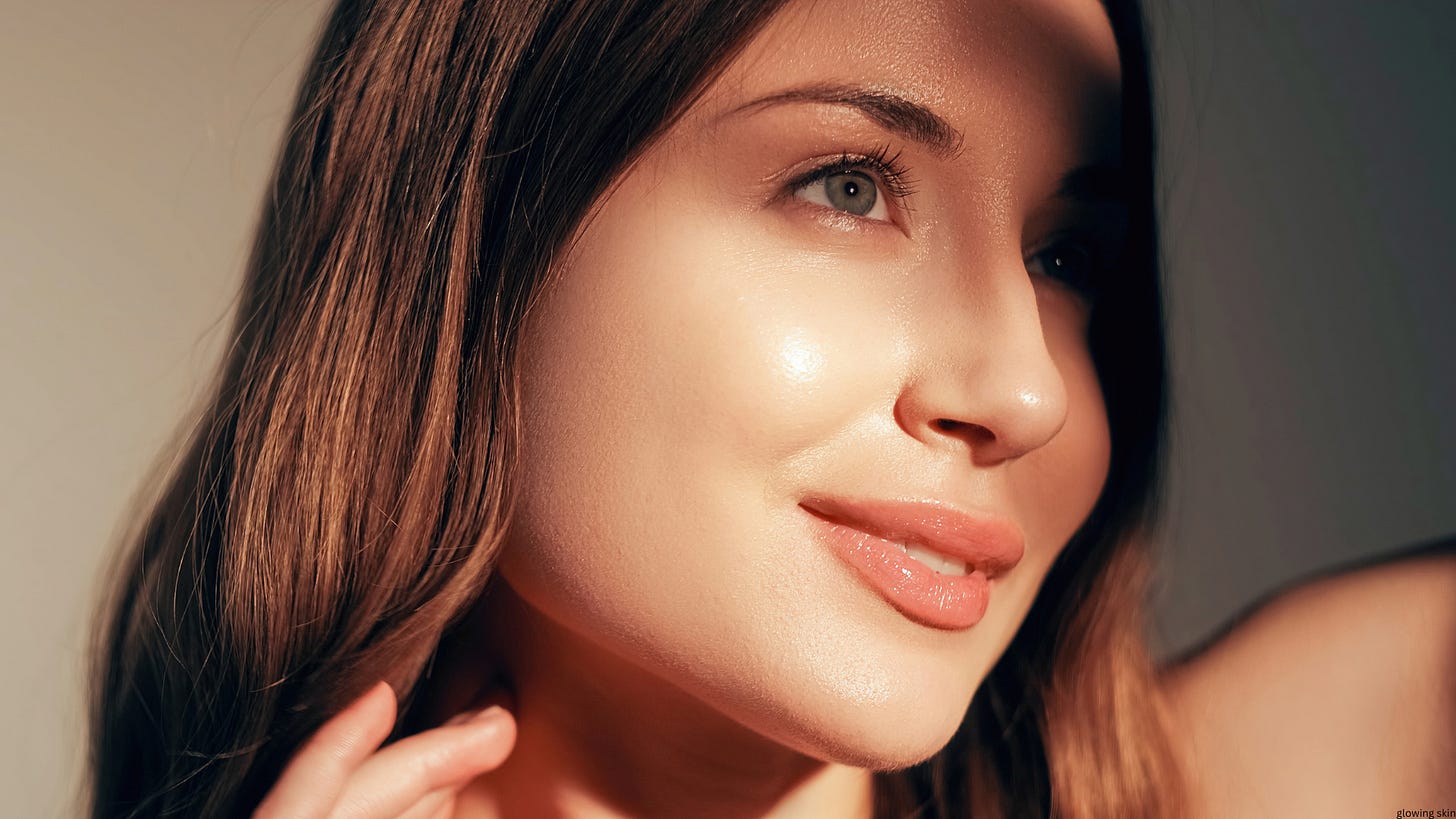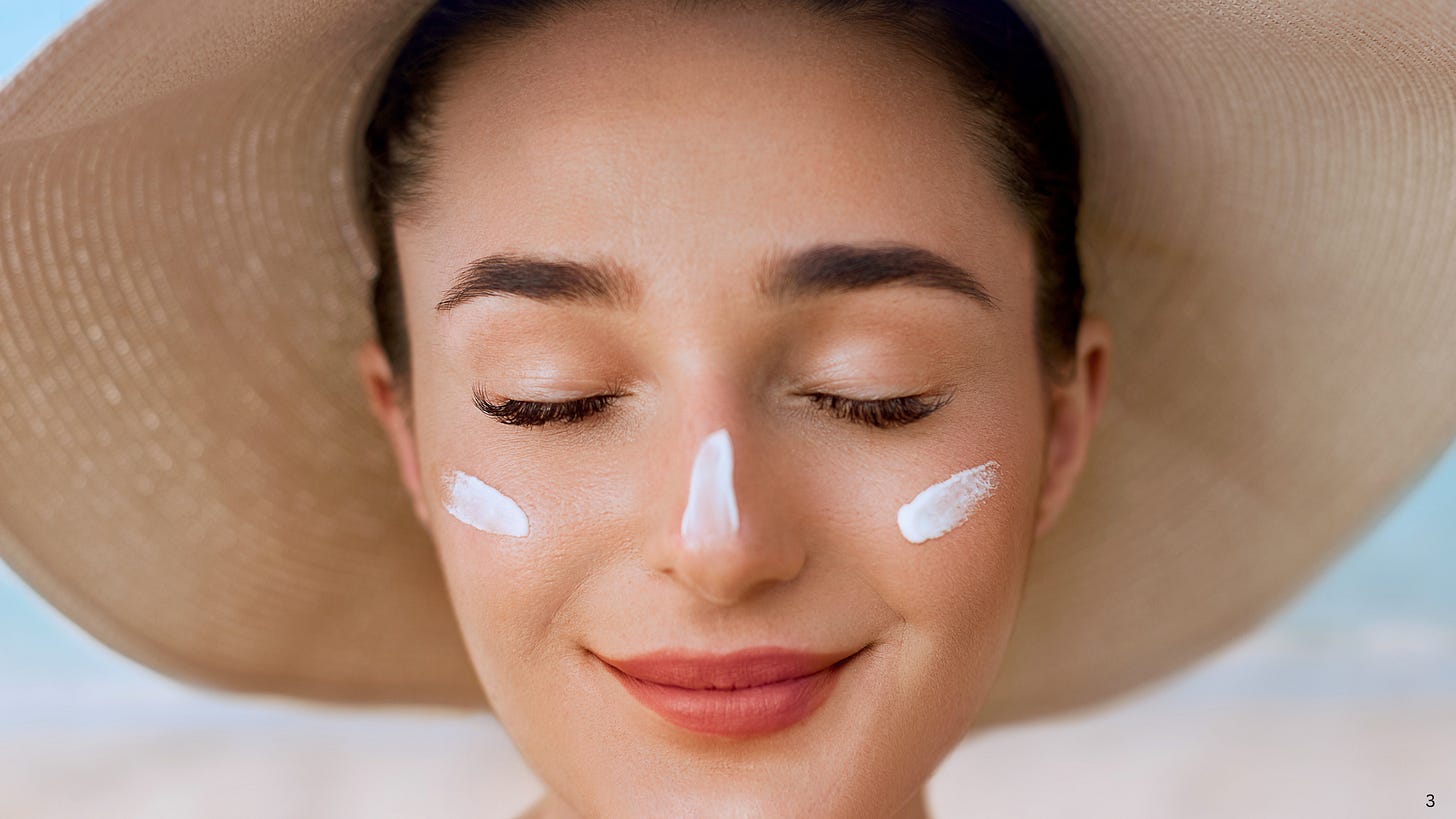There's a common belief that retinol is an exfoliant, but that's not quite right.
Although retinol does share some features with exfoliants, like helping with skin renewal and fighting signs of aging, it actually works in a different way and offers its own special benefits.
In this article, I'm going to tackle the big question: "Is retinol an exfoliant?"
I'll explain what retinol is and how it works.
Also, here are some of my top picks for retinol serums based on different skin needs:
Best for aging and dark spots: Naturium Retinol Complex or Medik8 Crystal Retinal
Best for sensitive skin: CeraVe Resurfacing Serum
Best for fighting acne: Adapalene 0.1%
What is retinol?
Retinol is a derivative of vitamin A, also known as a retinoid.
Retinoids are compounds that speed up skin cell turnover and tell your body to make you fresher, younger skin.
You may be more familiar with tretinoin, also known as retin-A, which is the active form of retinol that your body uses (retinoic acid).
However, unlike retinol, tretinoin cannot be found over-the-counter must be prescribed by a board-certified dermatologist.
Some of the key features of retinol include its ability to:
promote collagen production
fade dark spots
improve skin texture
unclog pores
and reduce acne breakouts
It’s one of the most versatile superstar ingredients in skincare.
That said, we don’t classify it as a chemical exfoliant because it operates differently than other exfoliants.
How does retinol work?
When applied to skin, retinol undergoes two conversion steps to become retinoic acid which eventually binds to your retinoid receptions.
At this point, the retinoic acid stimulates the turnover of dead skin cells and promotes the shedding of older, damaged cells.
This process is commonly known as exfoliation and results in skin smoothing.
Boosting Collagen Production
One of retinol’s other primary functions is to boost collagen production.
Collagen is a protein responsible for maintaining your skin’s structure and elasticity.
Essentially, as we get older, our collagen production naturally downregulates. This leads to the formation of fine lines, wrinkles, and ultimately, sagging skin.
By applying a retinol serum, you can counteract this decline by encouraging the synthesis of new collagen fiber which results in firmer, smoother skin.
Regulating Sebum Production
Further, retinol helps regulate sebum production. Sebum is the oil that your body naturally secretes throughout the day.
This can be particularly beneficial for people with oily or acne-prone skin as retinol can help with preventing clogged pores and reducing the occurrence of breakouts.
For example, using retinol after a salicylic acid cleanser is a great way to treat acne.
Key Differences from Exfoliants
While retinol shares some similarities with exfoliants in terms of skin renewal, you should know that their mechanisms of action are distinct.
A chemical exfoliator like an alpha hydroxy acid works primarily by physically or chemically removing the outer layer of dead skin cells, also known as your stratum corneum.
On the other hand, retinol operates deeper within your epidermis to encourage cellular turnover and boost collagen synthesis.
What are the benefits of retinol?
Using retinol in your routine via skin cycling or simply using it nightly can have profound impacts on your skin.
Some of the key benefits include:
Smoother skin: because retinol encourages the shedding of old skin cells, it helps reduce skin texture
Younger skin: because retinol stimulates collagen production, it helps reduce the appearance of fine lines and wrinkles
Even skin tone: studies show that retinol can help address concerns like uneven skin tone and dark spots
Managing acne: thanks to retinol’s ability to regulate sebum production and unclog pores, it helps fight acne breakouts
Of course, it’s important to note that the benefits of retinol may vary from person to person.
Factors like your skin type, the concentration of retinol in the product, and individual sensitivities all play a role in determining how beneficial retinol will be for you.
What are the side effects of retinol?
While retinol can offer you some remarkable benefits, it’s important to be aware of the potential side effects as well.
Some of the most common side effects include:
Skin Irritation: you may experience skin irritation, particularly when first introducing retinol into your skincare routine. Try starting with a lower concentration and gradually increasing usage frequency to mitigate this side effect.
Dryness or flaking skin: retinol can have a drying effect on your skin which can lead to flakiness. Using a hydrating serum and moisturizer can help fight this issue.
Sun sensitivity: studies show that retinoids can increase your skin’s sensitivity to the sun. Therefore, make sure you’re wearing sunscreen during the day to maintain healthy skin.
Potential breakouts: because retinoids speed up skin cell turnover, you may experience a temporary increase in breakouts, also known as purging. With continued use, these breakouts will subside.
If you have concerns about using retinol or experiencing side effects, you can consult with a dermatologist for personalized guidance.
Who does retinol work best for?
Retinol is a superstar versatile ingredient that can help with a variety of skin concerns and skin types.
Here’s who can benefit from it most:
People with mature skin: retinol is a gold-star treatment for signs of aging like fine lines and wrinkles
People with uneven skin tone: if you struggle with dark spots and hyperpigmentation, retinol is one of the most effective solutions out there
People with acne-prone skin: thanks to retinol’s ability to unclog pores, reduce breakouts, and regulate oil production, it’s one of the best acne-fighting ingredients
That said, using retinol isn’t limited to people with specific skin concerns. In fact, using retinol can benefit anyone looking to maintain healthy skin.
Facts & Fiction About Retinol Products
Myth #1 : All Retinol Products Are the Same
Nope, not all retinol products are created equal. They can vary in terms of concentration, formulation, and potential side effects. That’s why it’s essential to choose a product that aligns with your skin type and unique concerns.
Myth #2: You Can’t Use Retinol with Other Skincare Ingredients
Wrong! While you want to avoid layering strong ingredients like salicylic acid or mandelic acid on top of retinol to avoid irritation, it’s a myth that you can’t use them together. In fact, retinol can complement other ingredients like hyaluronic acid or vitamin C. The key is to introduce new products gradually and know when to use the new product at a different time of day (or alternate night) than retinol.
Myth #3: Retinol Should Only Be Applied at Night
False! While older-generation retinoids degrade under sunlight, that’s not always the case anymore. Some retinol products are formulated for daytime use, so it’s important to read the instructions on the bottle when you get a new product.
Myth #4: Retinol is Suitable for All Skin Types
Unfortunately, retinol might not be suitable for everyone. People with extremely sensitive skin should exercise caution with retinol and potentially consider milder alternatives like bakuchiol. Further, studies suggest that pregnant women should avoid using retinoids as well.
Myth #5: You Can Get Instant Results
While I wish that were true, patience is key when using retinol. Some people might notice improvements in just a few weeks, but it can often take months to see significant changes. The most important factor is using it consistently to reap the full benefits.
Myth #6: Retinol is Only for Mature Skin
Thankfully, retinol’s benefits extend far beyond mature skin. It can be a valuable addition to your skincare routine whether you’re concerned with aging or even acne, uneven skin tone, or skin texture.
Myth #7: Retinol Thins the Skin
While retinol speeds up skin cell turnover, it doesn’t thin your skin. In fact, it stimulates collagen production which can increase skin thickness and firmness over time.
Explore our retinol series: All About Anti-Aging: Retinol Part 1, All About Anti-Aging: Retinol Part 2, FAQ: Does Retinol Thin Your Skin?
The Bottom Line: Is retinol an exfoliant?
No, retinol is not an exfoliant.
While it does play a role in skin renewal like your traditional glycolic acid or beta hydroxy acid, retinol works through a different mechanism.
Traditional chemical exfoliants work on the surface of your skin while retinol works deeper within your epidermis to stimulate the turnover of dead skin cells.
Both products can complement each other in your skincare routine, but they should be used on separate nights to avoid inducing side effects like:
dryness
flaking skin
redness
and irritation
Ultimately, the choice between the two depends on your specific skin care goals and needs.
The key is simply understanding how they work so you can learn how to use them together correctly to achieve your desired results.
Cheers,









